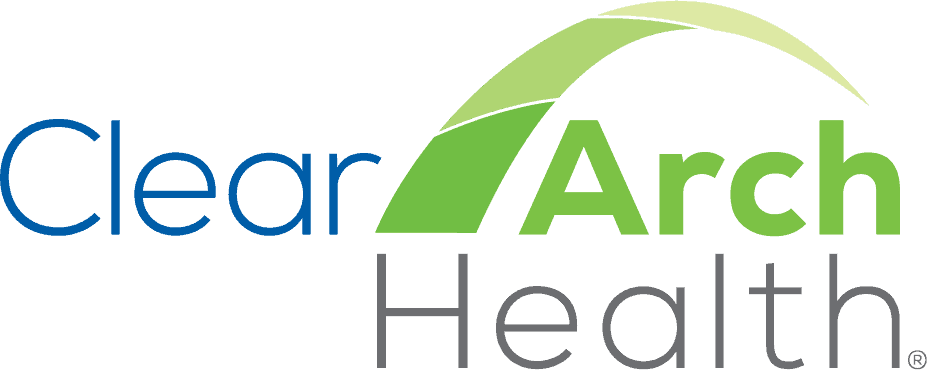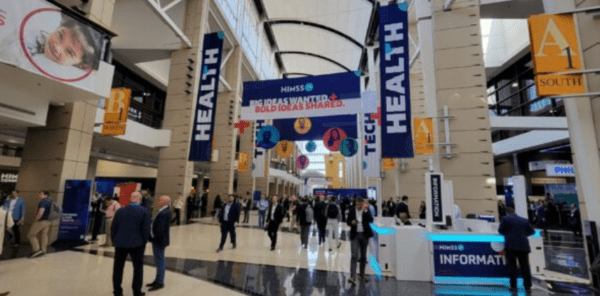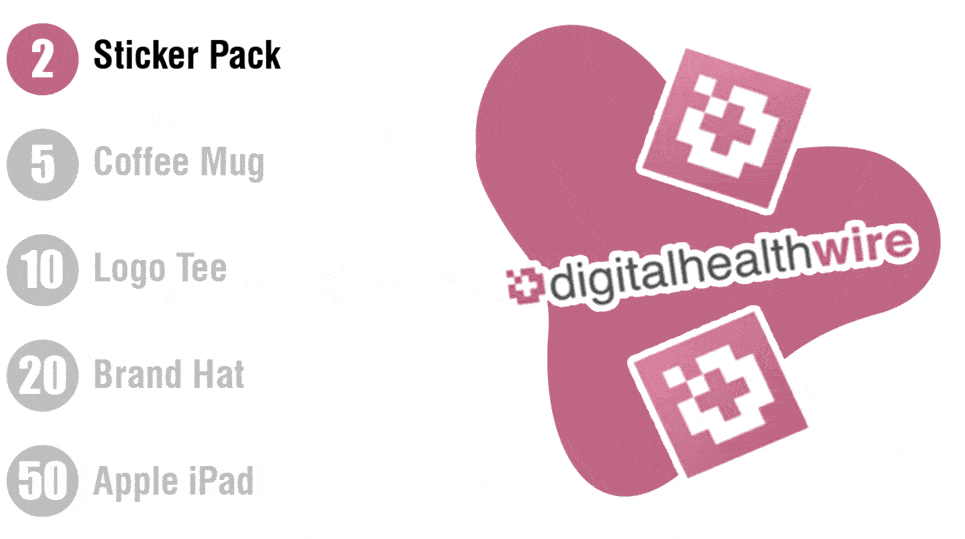|
HIMSS23 Recap and Major Announcements
April 20, 2023
|
|
|

|
|
Together with
|

|
|
|
“Chronic condition management isn’t only about improving people’s health, it’s about making it so that these conditions aren’t these all-consuming things that people’s lives have to revolve around. Yes, better health is part of that, but the focus is on making a life a better life.”
|
|
DocGo CEO Anthony Capone
|
|

|
|
It’s Thursday morning on the final day of HIMSS23, and although most exhibitors are still diligently manning their booths in the Windy City, the announcement fireworks have already gone off and it’s time to round up some of the biggest stories from the trade show.
The exhibit hall chatter had a familiar ring to it, touching on the same themes of healthcare consumerization and workforce burnout that were favorites at ViVE, but with a good amount of HIMSS’ signature interoperability seasoning sprinkled on top.
The list of generative AI launches somehow managed to be longer than the line at a McCormick Place Starbucks, but it seemed like most of the ~35,000 attendees were balancing the initial shock and awe with a realistic understanding of the tech’s current limitations in healthcare.
HIMSS23 major announcements, launches, and partnerships:
- Amazon rolled out several Alexa Smart Properties features designed to improve the patient and staff user experience at hospitals. The updates look like they make the lives of IT teams easier as they set up and maintain Alexa devices like the newly available Echo Show 15.
- Caregility announced a new portfolio of hybrid care solutions built on Caregility Cloud that’s designed to reduce tech investment risks for health systems by offering the flexibility to choose apps that are a good fit for their environment without creating more IT silos.
- eClinicalWorks introduced ChatGPT to its EHR and practice management solutions with the goal of making clinical workflows more efficient as it deepens its collaboration with Microsoft. Azure OpenAI Service will also be enhancing Scribe, eClinicalWorks’ AI dictation service.
- Epic and Microsoft are bringing generative AI powered by Azure OpenAI Service to the Epic EHR, which might take the cake as the biggest announcement of the show. The partnership delivers a “comprehensive array” of solutions, including SlicerDicer self-service reporting.
- Health Gorilla took the lid off its HG Accelerator Program that gives startups access to its solutions, portfolio of healthcare data APIs, and interop mentorship. The inaugural class already includes Oatmeal Health (AI cancer screening) and Long Health (patient onboarding).
- Innovaccer unveiled six new solutions that together look like the beginning of a new chapter in the company’s growth story. The Sara conversational AI leads the lineup that also includes Health Equity, Readmission Predict, Risk AI, Network Optimizer, and Health 1:1.
- Memora landed $30M to scale its SMS-based care communication platform that automates clinical responses to frequently asked questions, nudges patients with care prompts, and sends reminders via text, escalating only the most urgent concerns to care teams.
- Philips released its Future Health Index 2023 global report, which found that healthcare leaders are investing heavily in AI for both critical decision support and operational efficiency, and that these execs are leaning into outside partnerships to help provide the best possible care.
- RevSpring launched Engage IQ to coordinate patient interactions from pre-service to post-service to payment. The platform handles intake, clinical reminders, and billing to improve clinical and financial outcomes while solidifying patient loyalty.
- Rimidi’s clinical management platform is now integrated with MEDITECH, allowing clinicians to see remote patient-generated data and PROMs within disease-specific views in the patient chart alongside CDS support to drive next best steps.
- Salesforce customers can now use Einstein GPT to generate info using natural language prompts directly within their Salesforce CRM, with a new Slack integration also allowing care teams to summarize chat information and complete CRM tasks.
- symplr debuted four product suites as part of its Connected Enterprise initiative to help health systems address burnout and cost pressures. The new portfolio includes a Workforce Suite, Supply Chain Suite, Quality Suite, and Credentialing Suite.
- Withings completed its new range of smart scales with the introduction of the Body Smart scale that brings body comp, heart rate, visceral fat, metabolic age, and basal metabolic rate analysis to the entry-level tier of the lineup.
It’s now been three years since the pandemic stopped HIMSS20 in its tracks, but healthcare’s biggest IT conference is very much alive and well with an in-person energy that’s straight out of 2019. We hope that everyone had an awesome time if you made it to Chicago, and welcome all of our new readers that we met at the show. Stay tuned for a deeper dive into some of these announcements next week.
|




|
|
Clear Arch Health Reduces Readmissions at Altru
When Altru Health System set out to reduce hospital readmissions, it turned to Clear Arch Health to find the solution. Learn how Clear Arch Health’s complete RPM platform and clinical monitoring system helped Altru lower readmissions while improving post-acute care quality.
|
|
The New Staffing Landscape With connectRN
Flexibility is a key component of enabling nurses to deliver their best care without getting burned out. In this Digital Health Wire Q&A, we sat down with connectRN CEO Ted Jeanloz to discuss technology’s role in solving healthcare’s staffing challenges and the new ways that human-centered design can help support nurses.
|
|
The New Standard for Prescription Safety
Synapse Medicine’s quick-deploy Prescription Assistance API and components can be up and running in less than a day and instantly connect your HCPs to real-time drug data and prescribing support. Find out how easy it can be to equip your providers with the tools they need to ensure prescription safety and precision for their patients.
|
|
- Notable Launches Patient AI: Notable joined the GPT party with the launch of Patient AI, which leverages the tech to deliver personalized patient outreach without any staff involvement. Using GPT to scan existing clinical documentation, Patient AI can detect anything from missed diagnoses to incorrect addresses, then provide automated recommendations. To give you an idea of what that might look like, Notable uses the example of a lung cancer patient who receives recommendations to learn more about a relevant clinical trial and the option to reschedule multiple upcoming appointments into a single day.
- RPM Reduces Hospitalizations for COPD: A study published in the International Journal of Chronic Obstructive Pulmonary Disease highlighted the benefits of RPM in managing chronic obstructive pulmonary disease. In the 126-person study, a year-long RPM program (physiological monitors, cardiorespiratory sensors, online dashboard) led to a 65% decrease in all-cause hospitalizations and 44% fewer ED visits, important findings considering the largest cost drivers for COPD patients are related to hospitalizations for acute exacerbations.
- Oracle and Zoom Team Up: Oracle and Zoom are teaming up to integrate telehealth services directly into Oracle Cerner Millennium, enabling providers to enter virtual visits from within their EHR. The connected solution includes new tools to easily record updates from visits back into the EHR, which helps to reduce administrative burden, lets providers spend more time on care, and overall feels right in-line with Zoom’s hassle free solution ethos.
- Glooko Mobile App Overhaul: Glooko rolled out a massive overhaul for the Glooko Mobile App that included a top-to-bottom redesign that makes it easier for users with diabetes to organize, visualize, and share their data. The new look allows for quick access to the user’s most used actions like glucose trends or medication tracking, and the press release includes a nice Q&A with the design team that gives a behind-the-scenes look at what went into the redesign.
- Hint and Eden Expand DPC Nationwide: Direct primary care pioneer Hint Health is expanding its Hint Connect provider network across all 50 states through a new virtual DPC offering from Eden Health. The partnership allows employers to offer members access to a dedicated Eden care team of primary care and mental health providers for one flat membership fee built into their health plan, regardless of if they have convenient access to a local DPC clinic. This is another big move from Hint just weeks after launching their All-in-One DPC enablement solution.
- Digital MSK Health Equity: A new study in JMIR showcased the utility of digital care programs for improving access to MSK treatment in both urban and rural areas, providing new evidence that these tools can promote health equity. Patients in both settings reported high satisfaction levels and similar exercise session engagement, with rural residents showing higher engagement with educational content (P=0.001) and higher program completion rates (P=0.02).
- XRHealth Merger: Two leading medical VR players, XRHealth and Amelia Virtual Care, are merging under the XRHealth brand name to combine their services into a comprehensive offering deployed by over 2,500 clinicians. XRHealth integrates XR technology (virtual/augmented reality) and licensed clinicians to enable remote treatment for complex conditions like Parkinson’s Disease and Multiple Sclerosis. Amelia provides virtual environments for helping clinicians deliver CBT treatment, and brings with it a deep library of exposure tools and systematic desensitization content.
- Cadence + Providence: Cadence entered a major partnership with Providence to implement a remote patient monitoring and virtual care program across the system’s seven-state footprint. Cadence pairs its RPM platform with NP-led clinical care teams that monitor and respond to patient vitals, which led to 89% program adherence in a Providence pilot. The partnership marks Cadence’s fifth national health system, as it adds to a string of similar implementations at Ardent and ScionHealth.
- Physician Salaries Up 18%: Medscape’s latest survey of over 10k US physicians found that overall physician salaries have grown 18% to $352k over the last five years, with specialists now taking home an average of $382k. Medscape points to the ongoing physician shortage as a key driver of the above average wage growth, a trend that’s only magnified by an increasing number of physicians making career shifts within medicine such as reducing shifts or moving to virtual care.
- Help for the Physician Shortage? On a more positive note for the physician shortage, the number of residency slots for training new physicians would be expanded under newly introduced federal legislation. The Resident Physician Shortage Reduction Act of 2023 would expand the number of residency positions by 14,000 over seven years (the 2023 Main Residency Match had just over 40,000 open positions).
|
|
What is Patient Engagement for a CMIO?
In its patient engagement guide for hospital execs, Nuance examines the goals and challenges of Chief Medical Information Officers, highlighting the ways that AI-powered patient engagement solutions can help CMIOs reduce physician burnout and improve care delivery.
|
|
3 Ways to Ease the Pain of Provider Credentialing
Is provider credentialing adding cost and time to your bottom line? Check out Medallion’s new blog for three ways to ease the pain of provider credentialing so that you can focus on delivering quality care.
|
|
|
Share Digital Health Wire
|
|
Spread the news & help us grow ⚡
|
|
Refer colleagues with your unique link and earn rewards.
|

|
|
|
|
Or copy and share your custom referral link: *|SHAREURL|*
|
|
You currently have *|REFERRALS|* referrals.
|
|
|
|
|